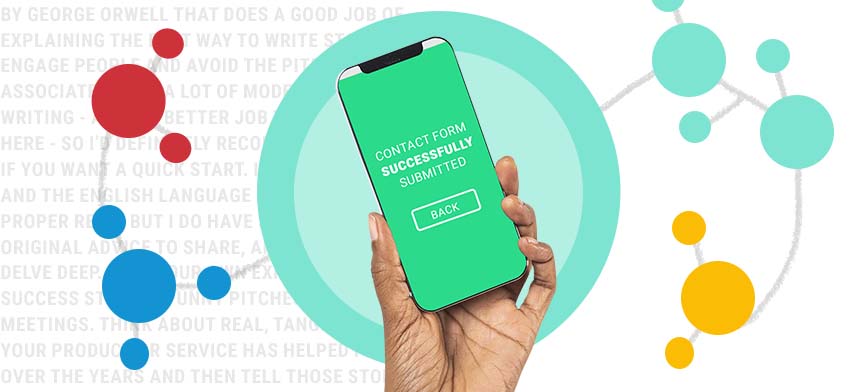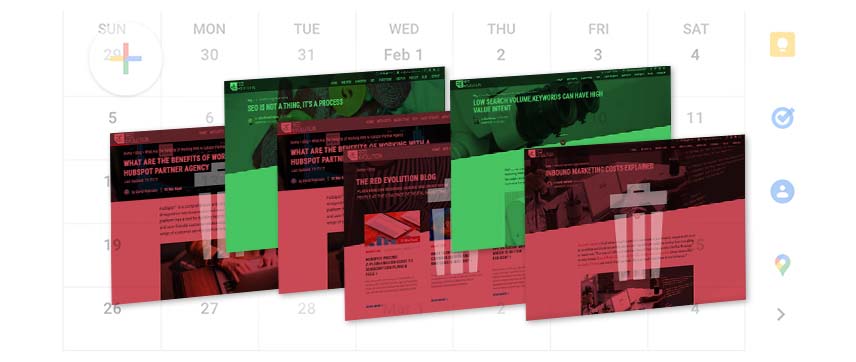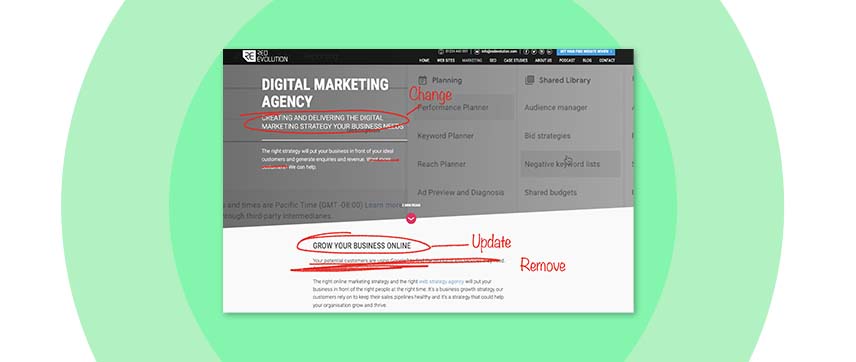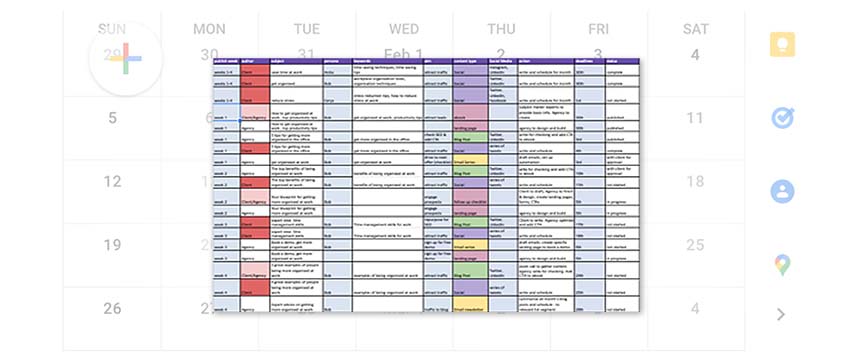The first steps of creating an effective and targeted content strategy are crucial. Get them right, and your chances of success increase dramatically. get them wrong, and your investment won't give you the expected ROI. Content Marketing is about creating and sharing useful content to generate business in the long term. However you distribute this content, it must always be valuable and relevant to the person who finds it.
Great Content, Not Just Noise
Content marketing could easily become a noisy activity in your business without ever achieving a single objective if it's not part of a strategic plan. Certainly, with all the channels available, it's possible to shovel content by the boatload into your blogs, tweets, videos, downloads and more! We've done that in the past, but today more than ever, quality will win over quantity, especially when the right strategy drives it.
This is because a strategy creates the framework around which you direct, measure, research and refine all the content work you put so much effort into. Your strategy will include all the things critical to your success - and will also consider anything that will detract from success.
Original Helpful Content Wins Every Time
There's no perfect process or system that fits every business. But that's not a problem - it means that when you have a strategy, it'll be yours and yours alone. It will evolve with your business - what it offers, what it wants to say and how it gives its customers the information they need. A strategy should never be a static document.
Knowing your current position is often a great place to start when creating any strategy, and it's the same with content. So, let’s take a few first steps toward creating your content marketing strategy.
Audit Your Current Content
First, audit your current content. Is it doing what you want it to do? Is it fulfilling the purpose of communicating your business effectively? Anything you produce for content marketing needs to align with your website's messaging and overall marketing strategy. With an audit, you may find current content that needs to be edited and gaps in your information that can be filled with new content. There may even be old website pages that are no longer relevant and need to be deleted or repurposed.
For example, we're constantly reviewing the performance of our blogs and website content pages, looking for opportunities to update some posts and delete posts that no longer provide anything useful to our potential customers.
In fact, old irrelevant content can harm your site's overall performance, especially if there's a lot of it. This became particularly noticeable as Google rolled out its useful content update.
Effectively, Google will reward sites with well-maintained content and increasingly ignore sites that appear full of outdated and unhelpful content. It makes perfect sense. So whereas once over, simply having tons of content seemed to work and help sites to secure more search traffic, today it seems less is more. So long as the less is good.
We can help with a free website audit if you're unsure where to start. Primarily we'll take a look at your site's Google Search Console data to identify opportunities for improvement.
Focus Your Content
Another common mistake we see, and again something we have been guilty of, is losing focus. Remember, your business provides specific products or services, so make sure your content doesn't wander too far into unrelated territory.
Ask yourself, what is your content trying to accomplish? For example, ensure you have content for your potential customers at every stage of the buying process, from before they have even heard of you to the eventual sale and beyond to reviews, recommendations and repeat purchases.
The journey will be subtly different for every business, but in general, you want to take into account the following steps:
Awareness - What will you do to grab people's attention and get them to notice you? For example, is your content helping potential customers at every stage of their journey, from recognising their need to satisfying it?
Engagement - How will you get people to look at your content and encourage them to interact with you once they have noticed you? Will you need to offer a free trial or some free consultancy? What are your competitors doing?
Conversion - What sort of content might help convert people into paying customers? Maybe a case study or video-based customer testimonial.
Also, it's rarely a linear process, and there may be other steps in between. The main thing is to ensure that you have content covering all the stages.
Create The Content Your Audience Needs
Once you've researched and know what your potential customers are searching for, you'll be able to create the content they need.
Use this information to guide what you create for your customers. You must create buyer personas to ensure you’re targeting the potential customers you most want to attract.
Then, ask yourself what information you can provide to help resolve their most pressing questions or issues. What can you help them do better? What do you know they want to do faster? What do they want more of? Less of? The answers to these questions form the basis of every piece of content you create and will help you define the topics you will focus on.
Great Content Generates Business
You must create the type of content your potential customers are looking for. Do they prefer video? Do they read blog posts? Do they listen to podcasts? Do they like to download free ebooks?
Knowing what your customers want and where they look for answers to their questions is a great combination and will bring the best rewards. But it can be challenging.
You need to ensure you don't spread your content efforts too wide. A simple approach focused on one or two types of content will work better than spreading yourself across all the available outlets. Getting great feedback on your webinars? Do more! If your blog posts rock, get into a blogging routine.
Use An Editorial Calendar
Document the content you’re going to create and what form it’ll take, the target audience and the keywords, who’s going to create it - and when. Stick to it, even when it feels really hard.
Content marketing can often feel like it isn't achieving anything, especially when you're trying to make some headway in a competitive niche. A content calendar can help keep you focused on where you're heading and why. Too many content marketing efforts have failed through inactivity, and that alone. Persistence will win the day,
By downloading our content strategy ebook, you'll get access to a content calendar template that you can edit to suit your own needs.
Keep Your Content Relevant
You will have to factor in some content maintenance and sunsetting for your content efforts to be the gift that keeps giving.
It's not unusual for large sites to have big content culls to keep the overall site quality high. You have to accept that some of your content will need to be rewritten or deleted. Again, we ignored this for too long on our site.
Plenty of case studies show removing content, sometimes, lots of it has a positive overall effect on a website.
This is perhaps partly because there was, for a while, a trend for bashing out lots of content "for search engines". We're well beyond that now, even though AI-written content makes doing it easier, at least that'a what the search engines want us to believe.
Strategy First, Always
Finally, keep that strategy in your sight. It's there to help you, so refer to it to stay on track. It will most certainly need tweaking from time to time so keep it up-to-date and relevant with regular reviews, improvements and re-alignments where necessary.

Over the years, content marketing has helped us to grow our business and work with some great clients. Right now, we're working hard to regain some of the visibility we used to have, and we believe this exercise will pay dividends and we'll let you know if it does, although if you're reading this it likely has.
For a no-obligation chat about taking your first steps to a content marketing strategy that will help you grow your business, get in touch.




